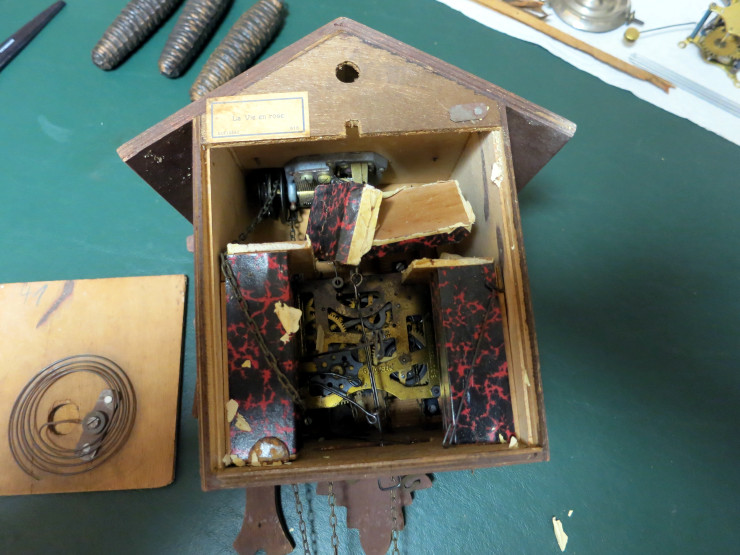Since I attended my first local chapter meeting of the NAWCC (National Association of Watch and Clock Collectors) I thought I’d make a quick gallery of the clocks I’ve worked on so far.
A 31 day Schoolhouse clock sold by Montgomery Ward
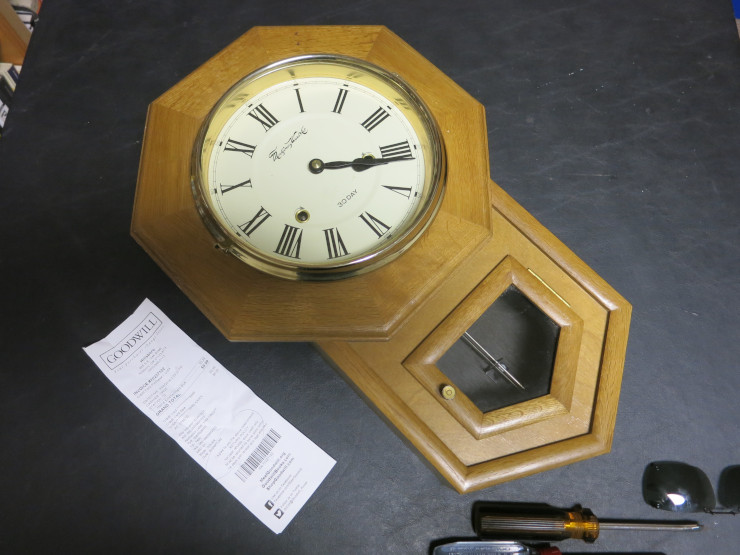
I bought this one from Goodwill. It had no pendulum and was dirty.
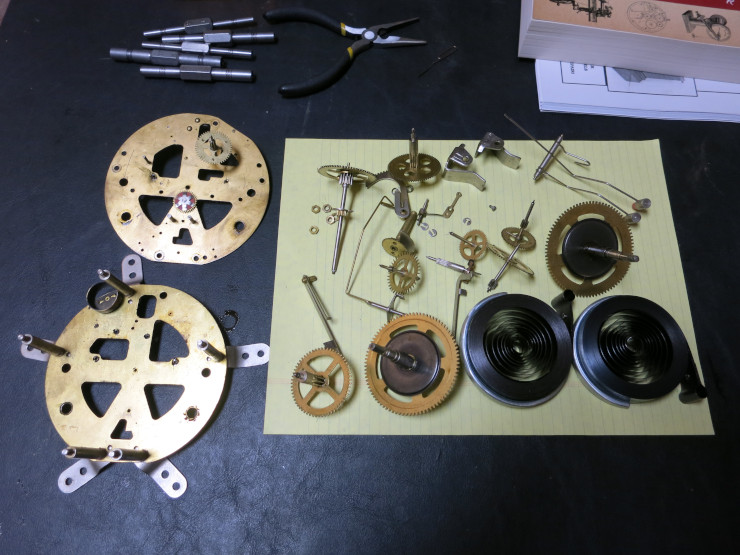
I was incredibly lucky that despite this being my first clock repair, I was able to fully disassemble it, clean the parts, reassemble and adjust it, add a new pendulum, and… it works!
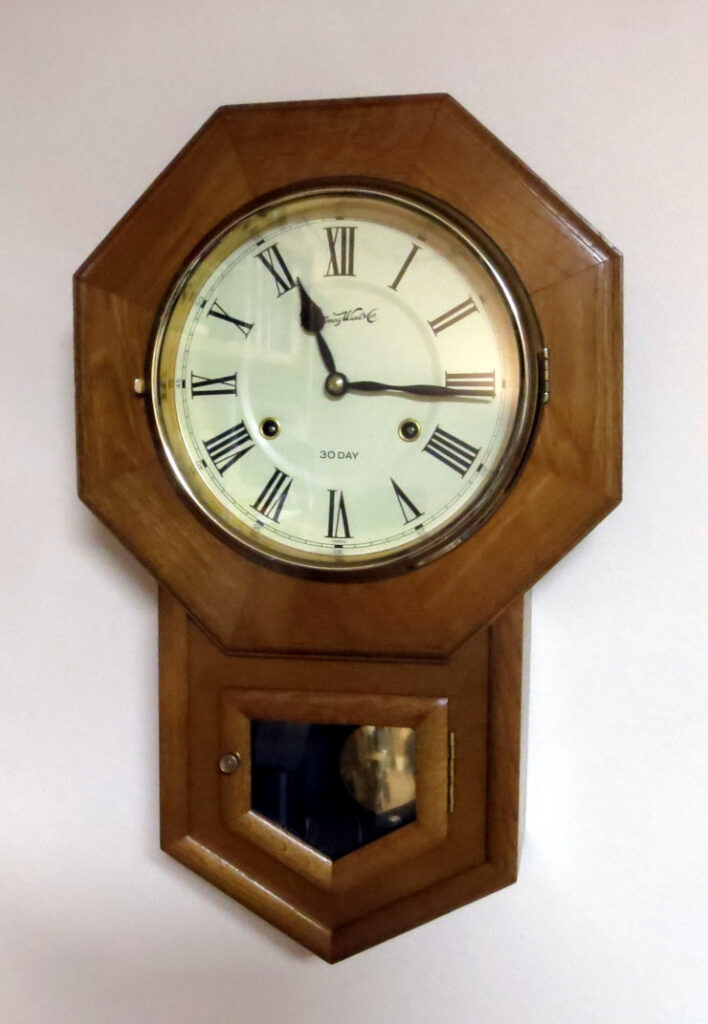
An Ansonia “Derby” Mantel clock
I found this clock at a local antique mall and took pity on it.
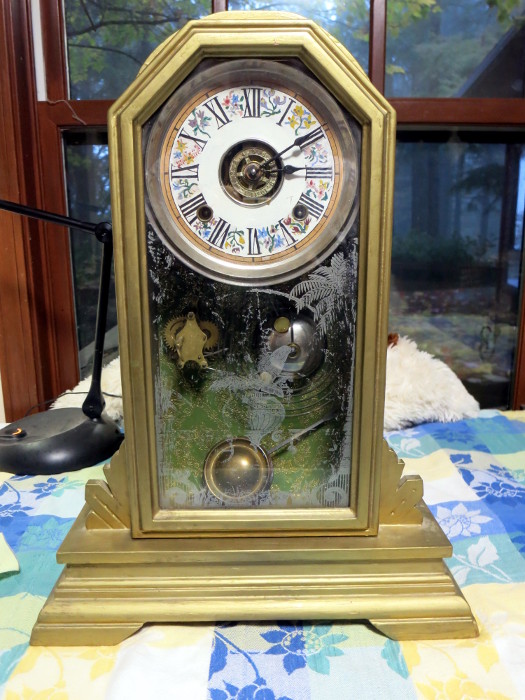
It had four coats of different-colored paint over its original oak wood.
As with the first clock, I fully disassembled the movement (and alarm), cleaned the parts, reassembled it, and replaced the broken pendulum hanger.
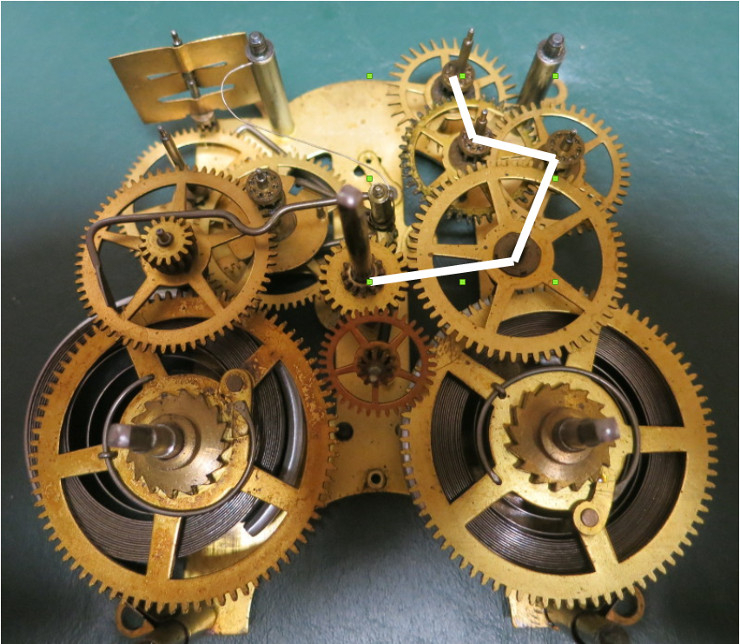
This clock had a couple real problems to fix: one warning pin was loose and threatened to come off – I replaced it; a couple wheels had no end-shake at all – I added thin washers to the posts to increase the wheels’ clearance.
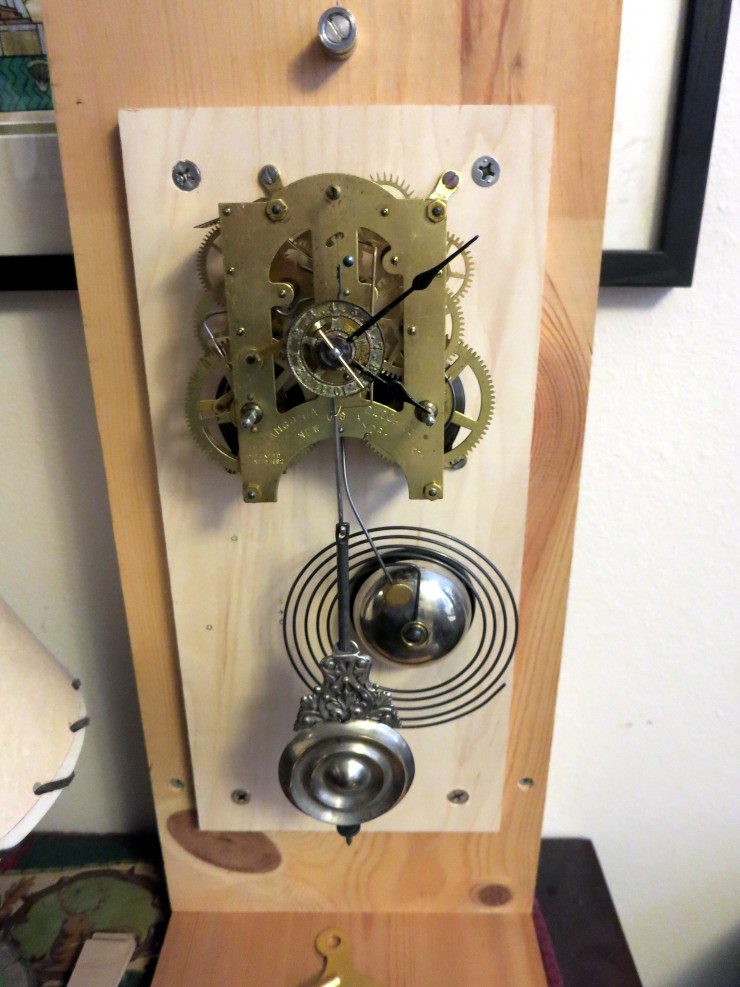
The case of this clock is proving to be a challenge. I don’t know much about stripping paint from oak, except that it’s easy to mess it up because oak has an open grain that can collect paint. I’ve sanded much of the paint off, but still need to strip the remainder of it.
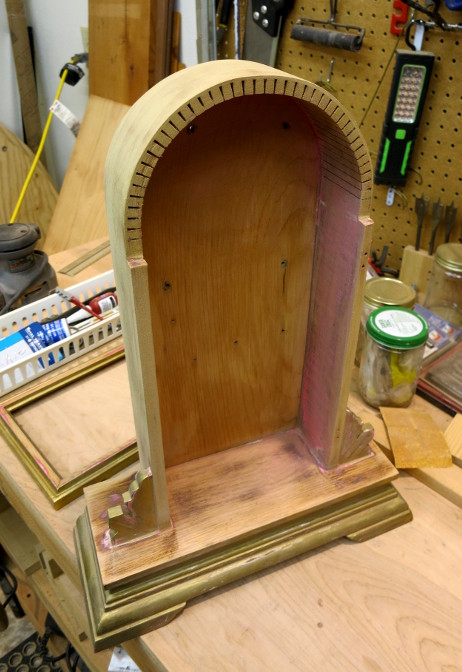
A Rusty Regula cuckoo clock movement
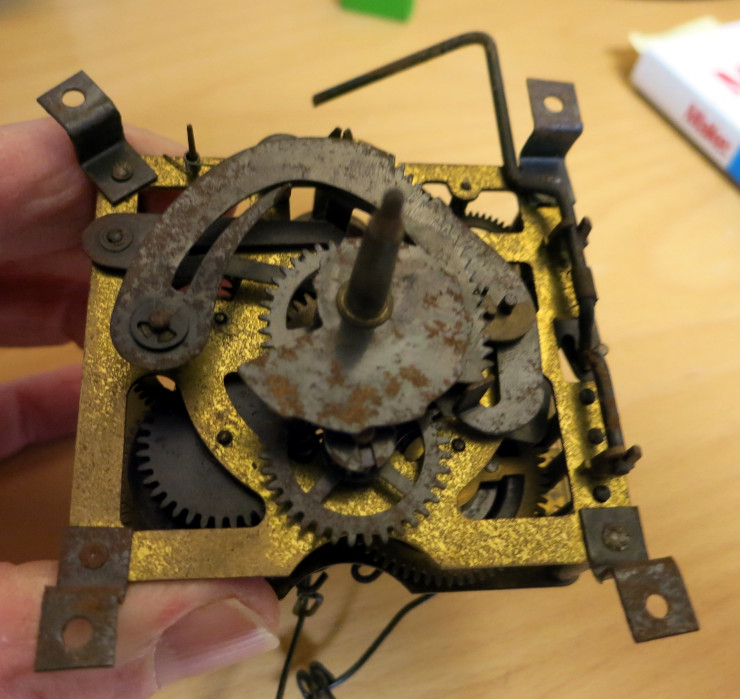
I bought this movement on eBay to practice repairing a cuckoo clock before working on a family cuckoo clock.
You know the drill: disassemble, clean with dish soap, water, and a toothbrush, then ultrasonic cleaner, rinse, wipe with alcohol-soaked paper towels, dry, reassemble and adjust.
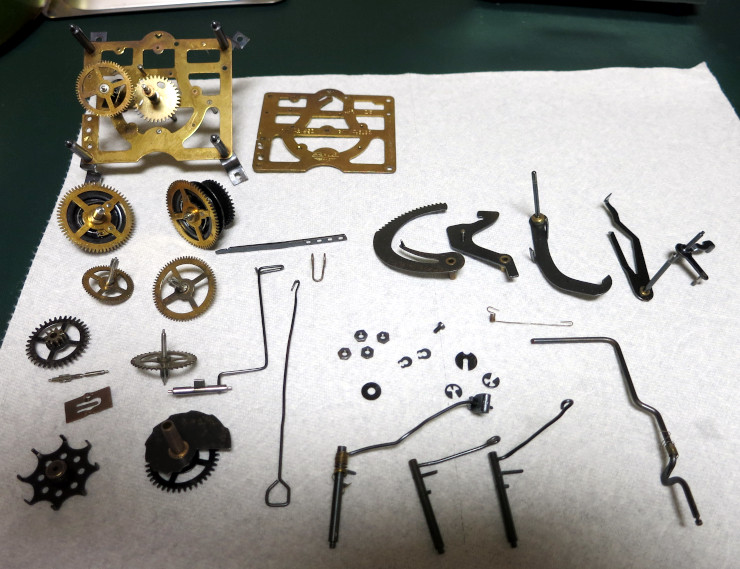
Once again, I lucked out over my ignorance. I also designed a case for this clock – it’s awaiting time for me to do some woodworking.
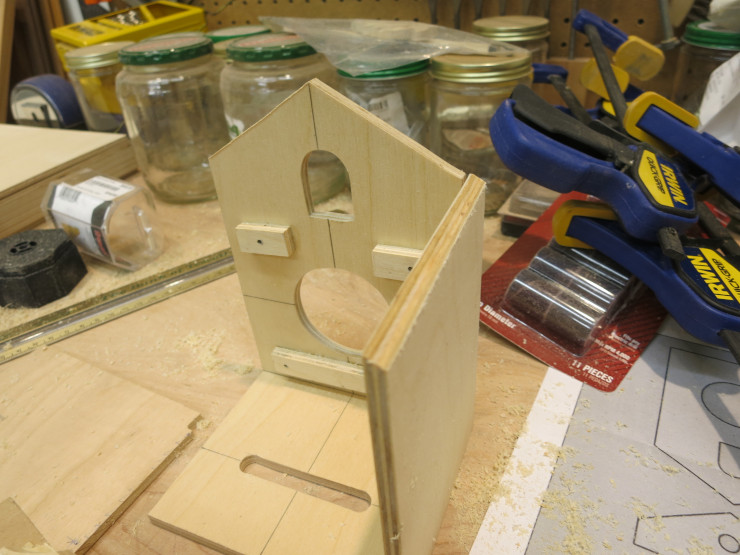
A whole cuckoo clock, via eBay
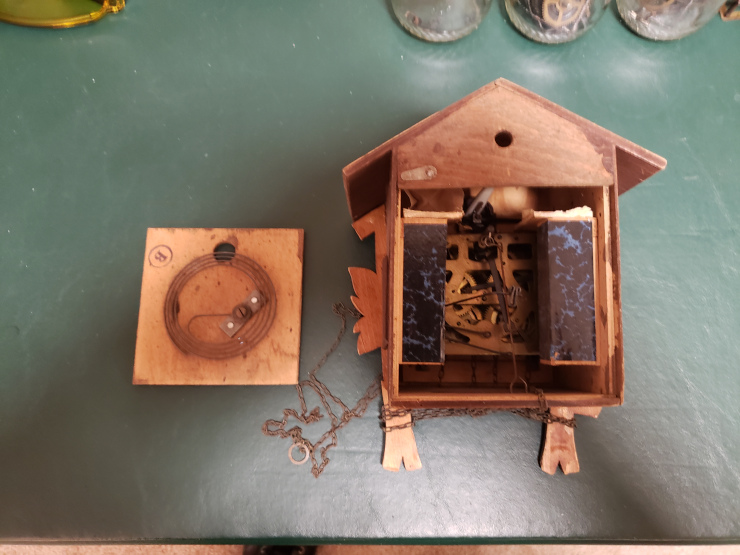
Working on my first cuckoo, I realized that there are so many connections to the clock case that I really needed a whole clock to work on. So I bought this one on eBay. It looks like it had suffered – as many cuckoo clocks have – a fall off the wall.
I did a lot of repair on this clock, including replacing the tops of the whistles and replacing the missing numerals. I also learned how not to do a few repairs: In removing rust, I also removed the bluing (which is an oxidation) from some levers.
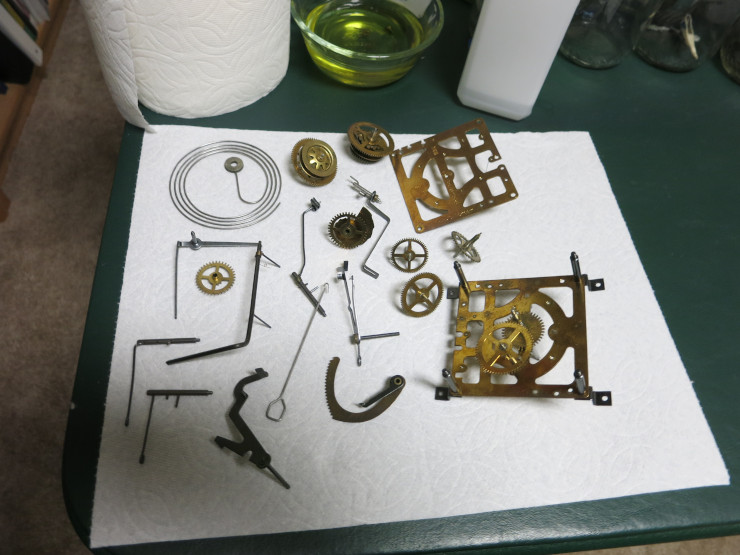
This clock is currently running on my wall. I’m a little surprised that I like the hourly “coo-coo” and the light ticking sound. This clock is waiting for me to clean a replacement surround and crown, and to make a replacement tongue for the cuckoo bird.
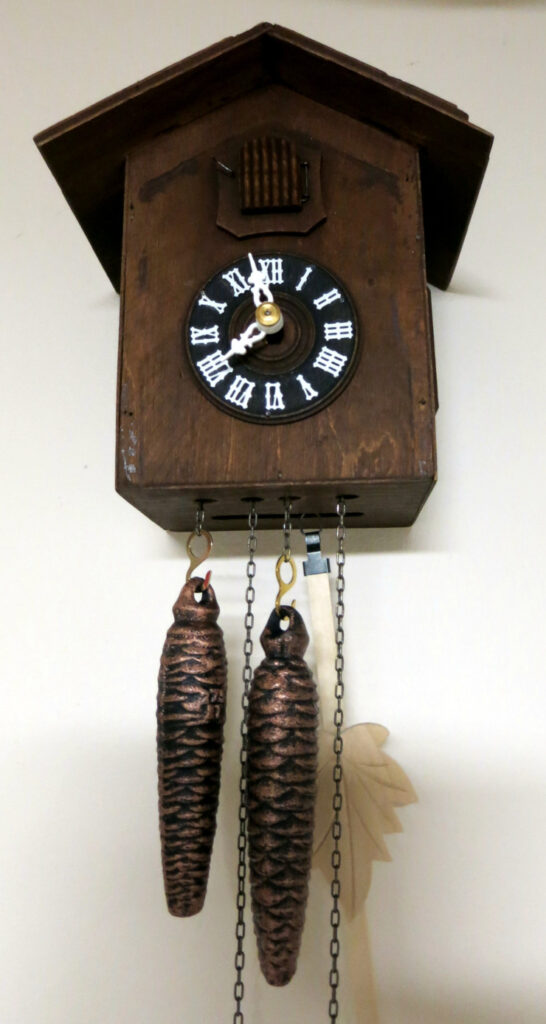
A soldered Regula cuckoo movement
I couldn’t resist this half-badly-repaired Regula cuckoo movement on eBay. I plan to learn bushing on this movement, because several of its pivot holes are heavily worn.
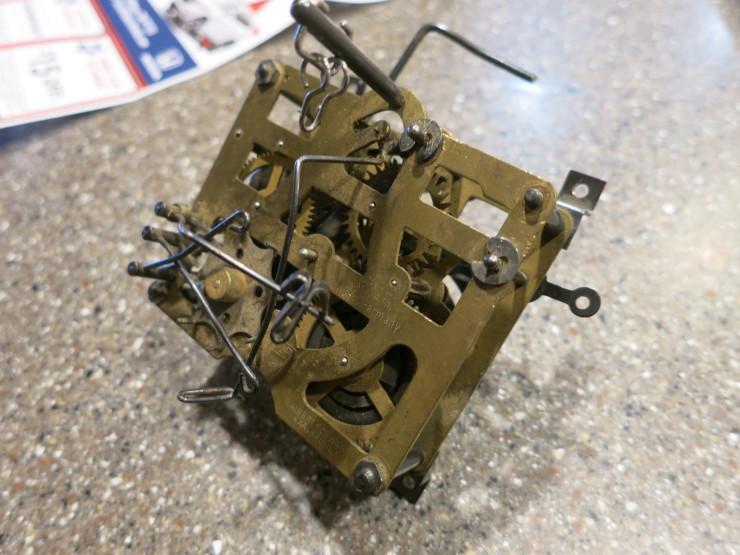
It has a couple of nasty repairs: the verge has been soft-soldered(!), the wrong clips are holding a few parts on, and it’s missing a few clips.
The verge was easy to replace, but once again I learned some things not to do: don’t polish the levers that are held by pressure clips (“Regula Crab Clips”) because now the clips won’t stay on.
I’ve cleaned this clock and done a few simple repairs; it’s waiting for me to finish the other clocks before I learn bushing on it.
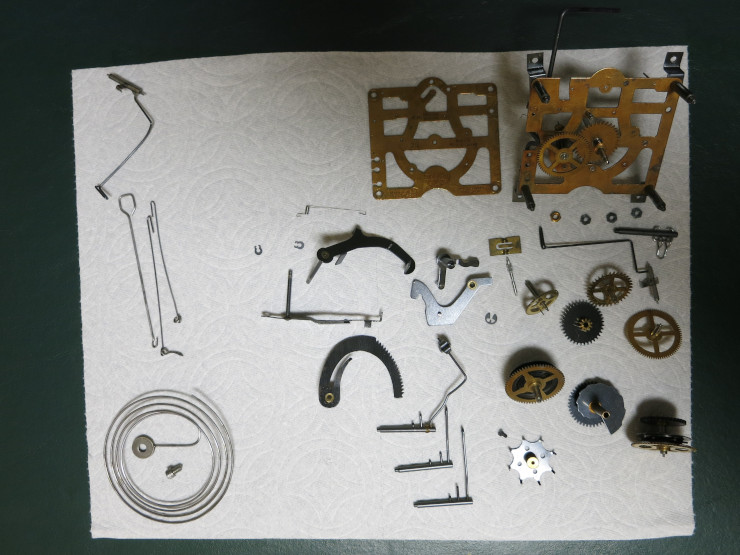
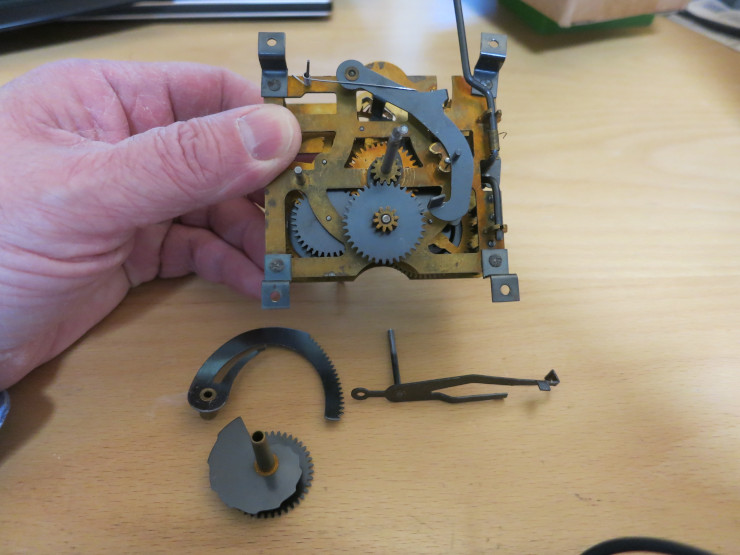
A family musical cuckoo clock
As I was working on all these clocks, some folks in our extended family handed me a musical cuckoo that didn’t run, and that had been in a dresser for at least 15 years. Mostly, it needed cleaning, new whistle tops, and a crown.
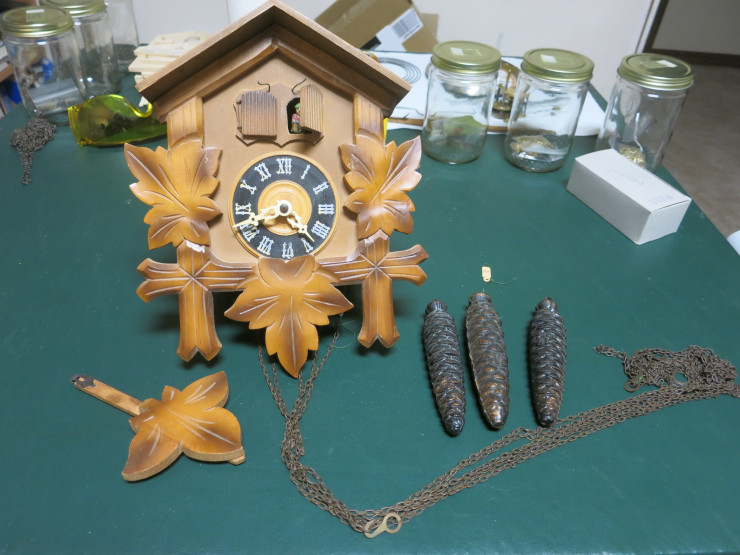
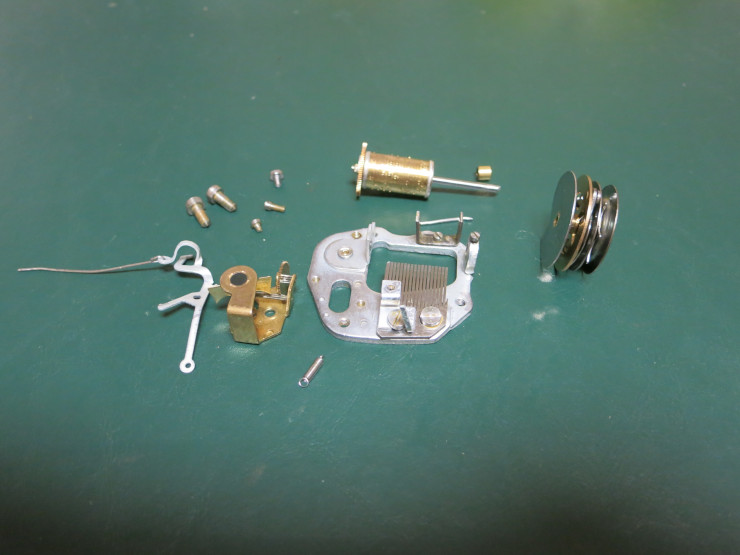
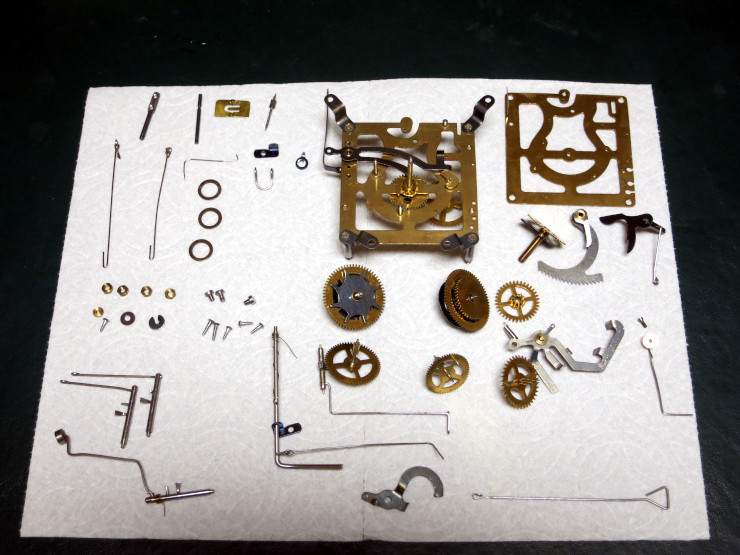
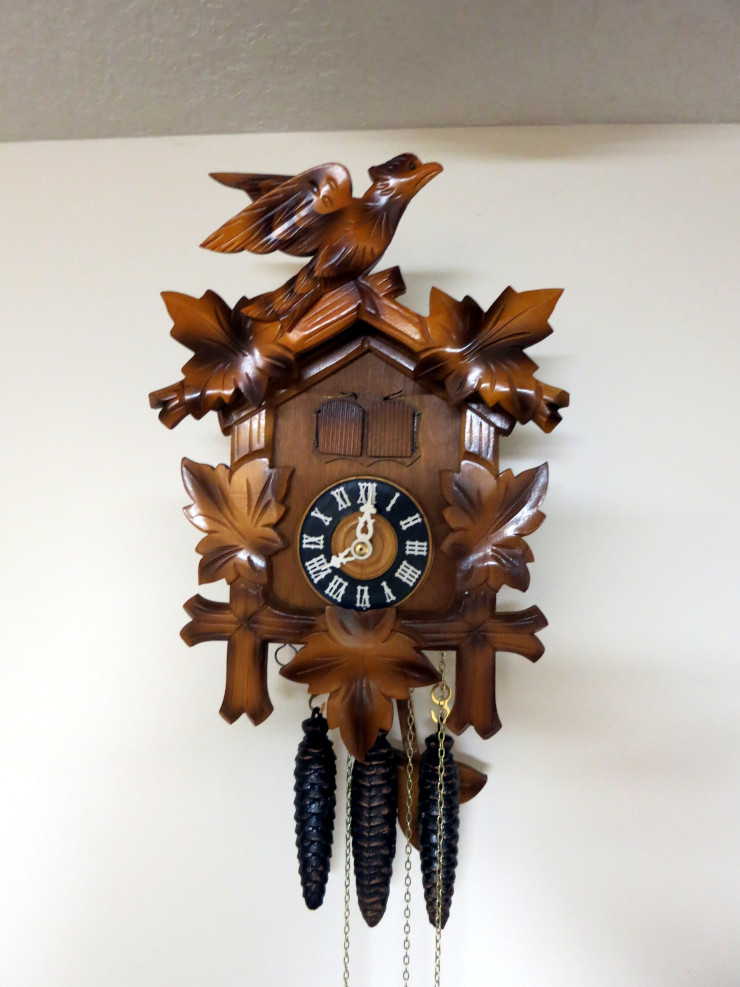
The eBay musical cuckoo clock
Again, I was really lucky that I was able to repair the family cuckoo clock without knowing enough (!), so I bought a musical cuckoo clock via eBay, to practice on.
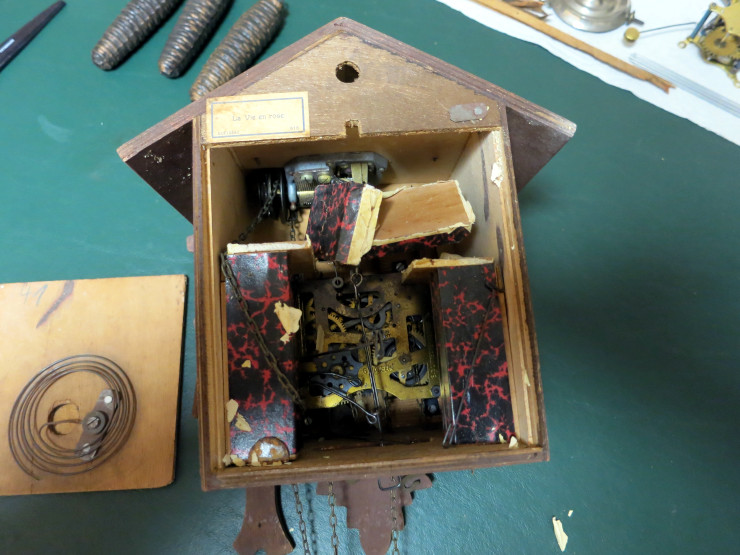
In addition to the usual work, I learned how (I think) to re-blue blued parts after removing rust (and bluing) from them.
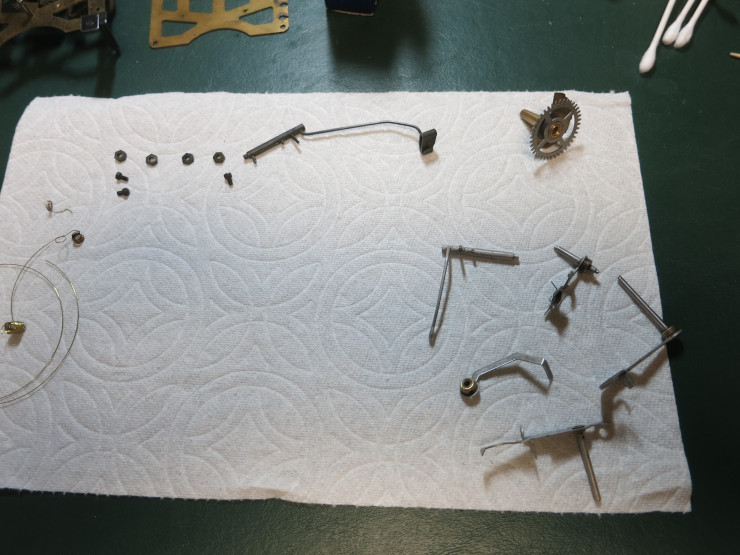
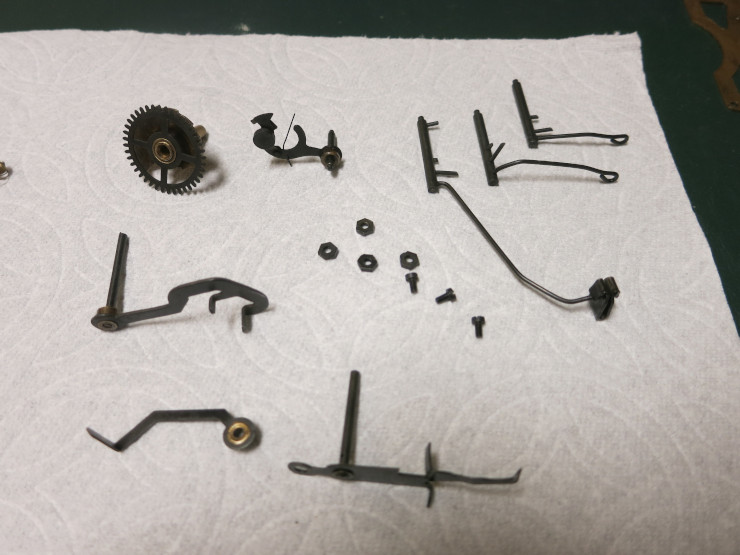
Like some other clocks, the case is the tricky part for me. I cleaned it with Gojo, then tried to stain it – only to discover that it has some sort of finish on it. I need to strip it and re-stain it.
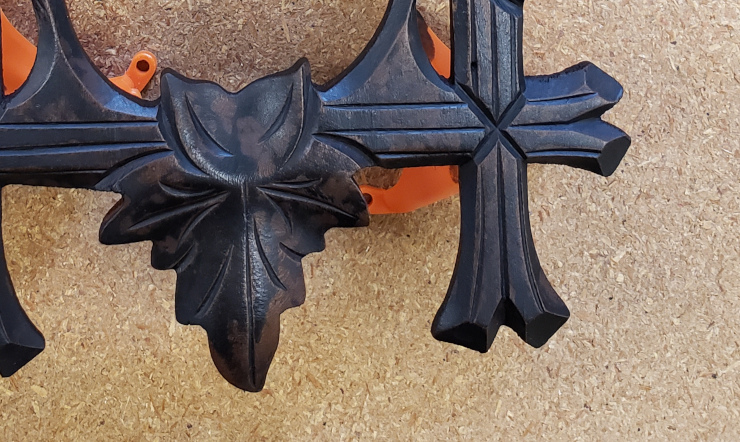
A Sessions Black Mantel clock
A while back I bought a Sessions Black Mantel clock to practice on, from The Clockmaker’s Gallery in Eugene Oregon. I’ve done nothing to it; I’m waiting until I’ve finished the other clocks before I start on this one.
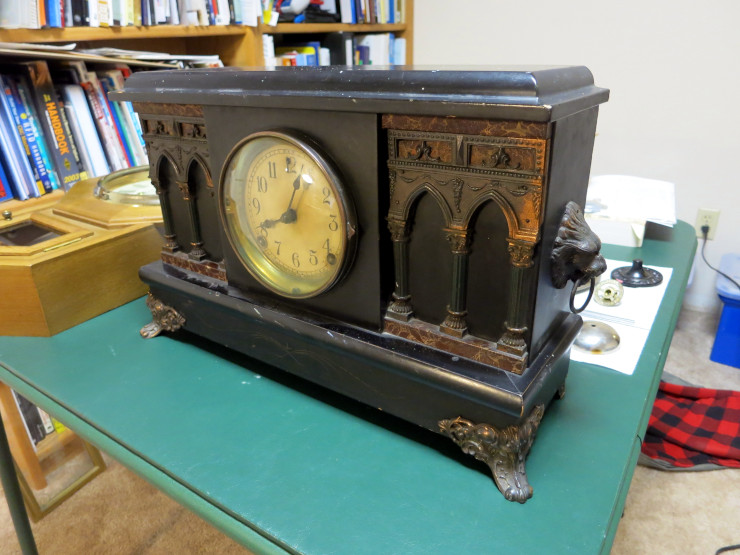
I’ve learned a lot, and been remarkably lucky with these clocks! I’ve learned a lot from dperry428 on YouTube, a few clock repair books, and the NAWCC.org message boards – thank you, everyone!

